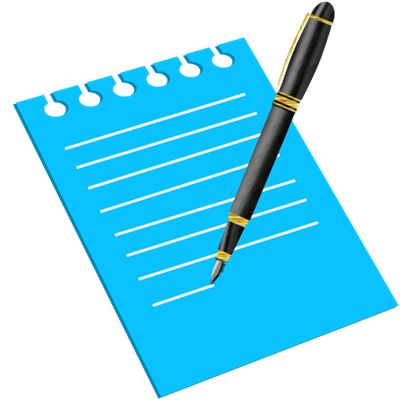Healthcare technical writing is a specialized form of technical writing that focuses on creating clear, concise, and accurate documents related to healthcare and medical topics. These documents serve a wide range of purposes, including providing instructions for medical professionals and patients, documenting procedures, explaining complex medical concepts, and supporting regulatory compliance.
Key characteristics and considerations in healthcare technical writing include:
- Clarity and Accuracy: Healthcare technical writing must be precise and accurate, leaving no room for ambiguity or misinterpretation. It should convey complex medical information in a clear and understandable manner, catering to both medical professionals and non-experts.
- Target Audience: Writers need to consider their target audience carefully. The language, tone, and level of technical detail may vary depending on whether the document is intended for medical professionals, patients, regulatory authorities, or other stakeholders.
- Regulatory Compliance: In the healthcare industry, there are numerous regulations and standards that must be adhered to, such as those set by government agencies like the Food and Drug Administration (FDA) or the European Medicines Agency (EMA). Healthcare technical writers need to ensure that their documents comply with these regulations.
- Documentation Types: Healthcare technical writing encompasses a wide range of document types, including medical manuals, user guides for medical devices, clinical trial protocols, patient information leaflets, regulatory submissions, scientific articles, and more.
- Collaboration: Healthcare technical writers often work closely with subject matter experts (SMEs) such as doctors, nurses, researchers, and regulatory specialists. Collaboration with these experts is crucial to ensure the accuracy and relevance of the content.
- Sensitivity to Patient Needs: Documents aimed at patients, such as patient education materials or informed consent forms, require sensitivity to the emotional and informational needs of the individuals involved. Empathy and clear communication are essential in such cases.
- Accessibility: Healthcare technical writers should consider accessibility standards to ensure that individuals with disabilities can access and understand the information provided.
Examples
Examples of healthcare technical writing projects include:
- Medical Device Manuals: Instructions for using and maintaining medical devices, such as infusion pumps or heart monitors.
- Pharmaceutical Documentation: Drug labeling, prescribing information, and patient medication guides.
- Clinical Trial Protocols: Detailed documents outlining the procedures, objectives, and methodology of clinical trials.
- Medical Research Papers: Scientific articles reporting the findings of medical research studies.
- Healthcare Policies and Procedures: Manuals and guidelines for healthcare institutions outlining standard operating procedures and protocols.
In healthcare, accurate and well-structured documentation is vital for patient safety, effective communication among medical professionals, and adherence to regulatory requirements. Healthcare technical writing plays a crucial role in facilitating these objectives while ensuring clarity and accuracy in the dissemination of medical information.
Responsibilities of a Healthcare Technical Writer
A healthcare technical writer is a professional who specializes in creating clear, accurate, and well-structured documents related to healthcare and medical topics. These writers possess a unique skill set that combines an understanding of medical concepts and terminology with technical writing expertise. Their role is essential in communicating complex medical information to diverse audiences, including medical professionals, patients, regulatory authorities, and other stakeholders.
Responsibilities of a healthcare technical writer may include:
- Creating User Manuals and Guides: Healthcare technical writers develop user manuals and guides for medical devices, equipment, and software. These documents provide detailed instructions on how to use, operate, and maintain the products safely and effectively.
- Developing Patient Education Materials: Writers craft patient-friendly educational materials, such as brochures, pamphlets, and online resources, to help patients understand medical conditions, treatments, medications, and other healthcare-related topics.
- Drafting Regulatory Documentation: Healthcare technical writers play a crucial role in preparing regulatory documents required for medical device approvals, drug registrations, and clinical trial protocols. These documents must comply with strict regulatory guidelines and standards.
- Producing Clinical Research Papers: Writers may collaborate with researchers and medical professionals to draft scientific articles and research papers detailing the findings of clinical studies and medical research.
- Creating Standard Operating Procedures (SOPs): Healthcare institutions rely on technical writers to develop well-structured SOPs that outline standardized procedures and protocols for various medical processes.
- Editing and Reviewing Content: Technical writers review and edit content created by subject matter experts to ensure accuracy, clarity, and adherence to industry standards.
- Ensuring Compliance and Quality: Healthcare technical writers must be familiar with relevant regulations and standards, such as those set by health authorities and industry bodies, to ensure that the documents they produce are compliant and meet high-quality standards.
- Collaborating with Subject Matter Experts: Writers work closely with medical professionals, researchers, engineers, and other subject matter experts to understand complex medical information and translate it into accessible language for the intended audience.
- Updating and Maintaining Documentation: Healthcare technical writers continuously update and maintain existing documentation as medical technologies and practices evolve.
A successful healthcare technical writer must have a strong background in both healthcare and technical writing. They should be adept at researching, organizing, and presenting complex information in a manner that is easy to understand for various audiences. Additionally, attention to detail, accuracy, and the ability to work collaboratively are crucial skills in this field. As the healthcare industry continues to evolve, the demand for skilled healthcare technical writers remains high to ensure effective communication and documentation within the sector.
- Free SEO Toolkit: How to Boost Your Website Rankings with Zero Budget - June 7, 2025
- What Are UTM Parameters? A Human-Friendly Guide to Tracking Your Traffic - May 7, 2025
- How to Build a GoHighLevel Funnel: A Step-by-Step Guide - February 13, 2025
